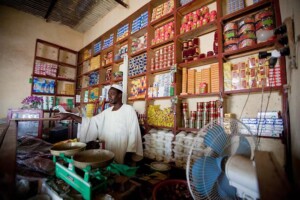PM Hamdok calls for unity to address ‘comprehensive national crisis’ in Sudan
Sudan’s Prime Minister Abdallah Hamdok has called on parties within the transitional government to show unity to address what he described as “the comprehensive national crisis” in Sudan, and set a one-month deadline for the formation of the Legislative Council with the participation of all forces.
 Prime Minister Abdallah Hamdok (SUNA)
Prime Minister Abdallah Hamdok (SUNA)
Sudan’s Prime Minister Abdallah Hamdok has called on parties within the transitional government to show unity to address what he described as “the comprehensive national crisis” in Sudan, and set a one-month deadline for the formation of the Legislative Council with the participation of all forces.
At a press briefing held at the premises of the Council of Ministers in Khartoum yesterday, Hamdok launched an initiative entitled ‘The National Crisis and Issues of Transition: The way forward’. Hamdok reviewed the elements of the national crisis, calling on all “to unite to end its dangers, which target the transition stage itself”.
Hamdok pointed out that despite what has been achieved, such as the first stages of peace, ending isolation, removing Sudan from the US list of sponsors of terror, and legal, political and economic reforms, “there are still challenges that stand in the way of the transition, the most important of which are the economic situation and the security arrangements that should be achieved as well as realising justice, ending security tensions, and the slowness in ending empowerment and elimination of corruption”.
He cautioned against the danger of divisions within the transitional bloc, absence of a unified centre for decision making, lack of priorities, and common perceptions of the transition.
‘Defusing the crisis will only take place through a comprehensive political settlement that includes unifying the civil and military front’ – PM Hamdok
The prime minister stressed that “defusing the crisis will only take place through a comprehensive political settlement that includes unifying the civil and military front and finding a common vision between them to move towards the success of the transitional period and building a civil and democratic state that is based on the principle of equal citizenship”.
He proposes establishing a national army through structural reforms. In his proposal, the PM explained that “the Rapid Support Forces are of a special nature” and indicated that the process of integrating them into the SAF requires consensus between the leaders of the Army, the RSF, and the government.
Hamdok also said that the intelligence service must implement what was stated in the August 2019 Constitutional Charter by giving the executive body a role in its management.
The PM pointed out that Sudan’s internal resources are sufficient to resolve the economic crisis. He focused on the necessity of dismantling the vestiges of the deposed Al Bashir regime and said that the parties dealing with foreign relations should be harmonised.
He expressed the need to expedite the formation of the Legislative Council within a period of a month, maximum, with the participation of all national forces except for the dissolved National Congress Party.
'Riddled with problems'
Human Rights Watch has criticised the plans by the transitional government, saying that “the joint force is riddled with problems, not least of which is that some constituent forces have poor rights records”.
The organisation asserts: “The formation of this nationwide joint force with a broad mandate to fight security threats has no legal basis neither under Sudan’s constitutional charter nor the October 2020 Juba peace agreement, which brought an end to hostilities between the government and several rebel groups."











 and then
and then